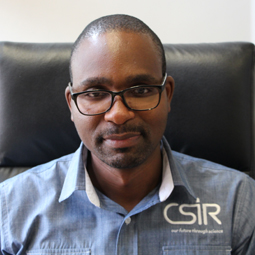CSIR career day opens learners’ eyes to new career paths
Hundreds of learners who attend the CSIR annual career day have described it as an eye opener in learning more about various careers in science, technology, engineering and mathematics (STEM).
This year, the event was used to highlight the impact and effects of climate change in South Africa. Learners were exposed to various technologies developed by the CSIR to curb climate change. This is in line with the 2019 National Science Week (NSW) theme “Facing the harsh realities of climate change”.
Hundreds of learners who attend the Council for Scientific and Industrial Research (CSIR) annual career day have described it as an eye opener in learning more about various careers in science, technology, engineering and mathematics (STEM).
On Friday, 02 August 2019, the CSIR hosted over 600 learners from schools across the country. CSIR Career Day was intended to expose learners, educators and the public to science-based careers and opportunities available for young people.
This year, the event was used to highlight the impact and effects of climate change in South Africa. Learners were exposed to various technologies developed by the CSIR to curb climate change. This is in line with the 2019 National Science Week (NSW) theme “Facing the harsh realities of climate change”. NSW is an initiative of the Department of Science and Innovation that aims to increase the level of public understanding of science countrywide.
CSIR scientists showcased various technologies developed to curb climate change including the Green Book, an online climate risk profiling and adaptation tool to assist municipalities across South Africa to assess climate risks and growth pressures, and climate–resilient roads, green buildings and renewable energy.
There were a number of technology demonstrations and talks including deploying robots in the ocean to monitor CO2 exchange, dissolved oxygen and temperature; climate change and health risks; the cars of the future; green buildings and the modular clinic.
Noxolo Kumalo, a grade 11 learner from Tsweing Secondary School in Winterveldt said she was grateful for the opportunity saying that the event opened her eyes to new careers opportunities.
“I think I am at a good state of mind now to choose my future career. This event is really a revelation to me. I have learnt about careers that I never knew existed such as robotics and machine learning. I was just focusing on being a medical doctor and not looking at other careers. We cannot all be doctors and lawyers, we should expIore other careers. I have learnt a lot about engineering here as well,” said Mathebula.
One of the teachers from Ubhlebuzile Secondary School in Mpumalanga, Mr Zwelitshe Hlatswayo lauded the CSIR for empowering learners with knowledge and encouraging them to look at other career opportunities.
“This is really a good platform; I would like to thank the CSIR for organising this event. It provides an opportunity for learners especially those from the rural areas to be open-minded. Our leaners are now empowered and motivated. I will like to encourage other schools to take advantage of this opportunity and bring learners so that they are fully aware of various opportunities,” he said.
CSIR Pipeline Development Manager, Joseph Tshikomba encouraged learners to explore careers in STEM saying the CSIR offers numerous careers in these areas.
“Our outreach, bursaries, internships and graduate in training programmes aim to realise the potential of bright young minds by nurturing and developing their expertise in various science, technology, engineering and mathematics fields”.
Tshikomba said the Grade 12 and university students must be on the lookout for the CSIR bursary opportunities.
“The CSIR bursary programme supports South African students. Those currently in Grade 12, intending to enrol full-time for science, engineering and technology degrees should have English (Level 5), Mathematics (Level 6) and Physical Science (Level 6). University students that have enrolled full-time for science and technology degrees and passed all modules for the study years already completed qualify as well,” he said.
End
Issued by David Mandaha, CSIR Media Manager, 012 841 3654 or 072 126 8910.
About the CSIR:
The CSIR is one of the leading scientific and technology research, development and implementation organisations in Africa. Constituted by an Act of Parliament in 1945 as a science council, the CSIR undertakes directed and multidisciplinary research, technological innovation, as well as industrial and scientific development to improve the quality of life of all South Africans. For more information, visit www.csir.co.za.
Follow us on social media:
Twitter: @CSIR. Facebook: CSIRSouthAfrica. Instagram: CSIRSouthAfrica. LinkedIn: Council for Scientific and Industrial Research (CSIR). Youtube: CSIRNewMedia.


